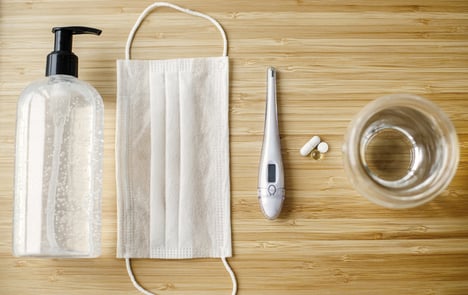 Healthcare providers and scientists are all working diligently to find ways to prevent, treat, and cure COVID-19. Many of us are eager for answers and probably getting tired of not knowing what to believe. One of the hot topics floating around is about Vitamin D’s role in preventing COVID-19. Can Vitamin D really protect us against COVID-19 or at least lessen the effects? Let’s take a look.
Healthcare providers and scientists are all working diligently to find ways to prevent, treat, and cure COVID-19. Many of us are eager for answers and probably getting tired of not knowing what to believe. One of the hot topics floating around is about Vitamin D’s role in preventing COVID-19. Can Vitamin D really protect us against COVID-19 or at least lessen the effects? Let’s take a look.
The Role of Vitamin D
Vitamin D serves many purposes in the body, the most commonly known purpose being assisting calcium absorption and bone mineralization for good bone health. It is less well known that Vitamin D plays an essential role in immunologic function—keeping your immune system strong. Vitamin D inhibits both B cell and T cell (lymphocyte) proliferation/rapid increase, affects T cell maturation, and facilitates the induction of T regulatory cells. It also helps regulate monocytes production of inflammatory markers and inhibits dendritic cell (DC) differentiation and maturation. All of this leads to a decreased production of inflammatory markers and an increase in anti-inflammatory markers. In short, it has an anti-inflammatory role.
Vitamin D and COVID
Now that you understand the role of Vitamin D in immune support, let’s look at the link between that and COVID-19. When healthcare providers check your Vitamin D levels, they request a lab called 25-hydroxyvitamin d. This is the circulating Vitamin D in your body. Ideally, we want to see that number be at least 30 ng/dL. In theory, having enough circulating Vitamin D should reduce complications by preventing the “cytokine storm” that providers are seeing in response to COVID-19 infection. The cytokine storm is when the level of inflammatory proteins rapidly rises to dangerously high levels. It is what leads to complications such as ARDS, myocarditis, and acute renal and heart failure, especially in those elderly patients with previous cardiovascular comorbidity. Researchers have started requesting this lab from patients with COVID-19.
Study Shows Decreased Risk for Adverse Affects
One cross-sectional study of 235 individuals showed that patients with at least 30 ng/dL had a significantly decreased risk for adverse effects, such as hypoxia (low oxygen levels), death of individuals over 40, and unconsciousness. Serum C-reactive protein (an inflammatory marker) was lower and lymphocyte percentage was higher in Vitamin D–sufficient COVID-19 patients. In the study, 67.2% of the 235 COVID patients had Vitamin D levels less than 30 ng/dL. The study saw no significant difference in hospitalization duration, ICU admissions, Acute Respiratory Distress Syndrome (ARDS), and intubation between insufficient and adequate Vitamin D levels.
Similarly, a study showed Vitamin D levels were significantly lower in COVID patients with severe symptoms than those with mild symptoms or no COVID at all. Of the symptomatic patients, 54 were admitted to the ICU due to ARDS—all of whom had lower Vitamin D levels than the patients not needing the ICU. Sadly, 19 patients died, and again they found that these patients had lower Vitamin D levels than the ones who survived.
Another Study Finds Lower Levels of Vitamin D in Hospitalized Patients
A study of 216 COVID-19 patients and 197 population-based controls saw significantly lower levels of Vitamin D in the patients hospitalized due to COVID-19 than the controls (of similar age and sex), which lines up with the previous studies. On the contrary, they did not find a relationship between severity of infection and Vitamin D levels like the other studies found.
Study Finds People with Vitamin D Deficiency More Likely to Test Positive
Another study of 489 patients found that those with Vitamin D deficiency (<20 ng/dL) were 1.77 times more likely to test positive for COVID-19 than those with sufficient Vitamin D levels. The study above by Hernandez et al supports this finding, showing that 82.2% of COVID-19 cases were deficient in Vitamin D compared to the population-based controls, where only 47.2% were deficient (which is significant).
Correlation Is Not Causation
Something to note: These studies are observational studies. Thus, we cannot determine a cause-and-effect relationship between vitamin D deficiency and COVID-19 infection outcomes. Correlation is not synonymous with causation. So, while these results are important and useful, we must be careful to not go as far as saying, “Vitamin D can protect me from COVID-19 or lessen the impact if I get sick with COVID-19.”
Further research is being conducted since we do have strong observational support that suggests low Vitamin D levels may favor respiratory dysfunction and even death in those with COVID-19. Several Randomized Control Trials are in process. Many are trialing high-dose Vitamin D in those with COVID-19, such as the registered study by University Hospital in Angers (France). One has already concluded, but it was small with only 50 hospitalized patients being given a high dose of Vitamin D (calcifediol) and 26 not given a high dose of Vitamin D. Only 1 of the 50 high-dosed patients needed ICU treatment, whereas 13 of the 26 not given Vitamin D needed ICU treatment.
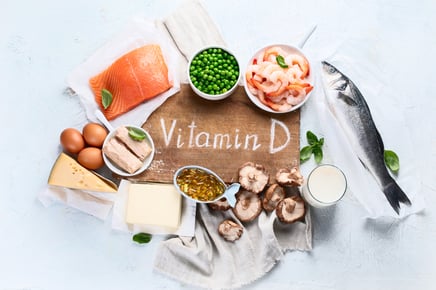 Vitamin D Recommendations
Vitamin D Recommendations
Let me be real clear: You do not need to start taking a megadose of Vitamin D! Doing so can actually lead to toxic effects because it is a fat-soluble vitamin. The goal is to prevent deficiency to help keep your immune system strong.
I do suggest reflecting on your Vitamin D intake and exposure. Do you get out in the sun 10–30 minutes several times weekly? Sun exposure is less common in the winter, which hints at why more people are Vitamin D deficient in the winter months. When the sun’s UV rays hit our skin, Vitamin D3 (cholecalciferol) synthesis can occur. Do you eat Vitamin D–rich sources? If not, start to add some foods that are rich in Vitamin D. This will help you reach the RDA of 600 IU for young adults under 70 years old and 800 IU for adults older than 70 years old.
Here are some Vitamin D–rich foods:
- Trout, rainbow, cooked (3 oz = 648 IU)
- Pink salmon, cooked (3 oz = 444 IU)
- Halibut, Atlantic or Pacific, cooked (3 oz = 196 IU)
- Portobello mushrooms (1/2 cup = 316 IU)
- Canned tuna (3 oz = 228 IU)
- Milk, whole, 1%, 2%, and nonfat (1 cup = 115–128 IU)
- Yogurt, various types and flavors (8 oz = 80–120 IU)
- Soy milk (1 cup = 116 IU)
- Orange juice, fortified (1 cup = 100 IU)
- Eggs (1 large = 44 IU)
If getting your RDA by eating these foods is not realistic for you, I would suggest a Vitamin D3 (cholecalciferol) supplement to help increase your intake. A Registered Dietitian can help you adapt your nutrition regimen to meet Vitamin D requirements.
Finally, speak with your healthcare provider. They can always request that your 25-hydroxyvitamin d (circulating Vitamin D in your body) lab be checked. If you’re found to be deficient, you may require larger doses for treatment.
The Bottom Line
We do have strong observational support that suggests low Vitamin D levels may favor respiratory dysfunction and even death in those with COVID-19. However, we simply do not have enough strong data to conclude that Vitamin D sufficiency can treat or prevent COVID-19 infection until Randomized Control Trials are complete.
In the meantime, the best thing to do is continue to stay healthy (or improve your health) and keep your immune systems strong, which includes eating enough Vitamin D or having adequate Vitamin D exposure.
As always, please reach out to a NIFS Registered Dietitian for any nutrition support you need.

This blog was written by Sabrina Goshen, NIFS Registered Dietitian. To learn more about the NIFS bloggers, click here.
 We can concur with many years of research that obesity can increase the risk of immune dysfunction. This is a multifaceted phenomenon often associated with factors such as physical inactivity, poor nutritional profiles, increased adiposity (fat tissue), and metabolic disorders/diseases. Commonly, the latter can gradually progress from the aforementioned factors.
We can concur with many years of research that obesity can increase the risk of immune dysfunction. This is a multifaceted phenomenon often associated with factors such as physical inactivity, poor nutritional profiles, increased adiposity (fat tissue), and metabolic disorders/diseases. Commonly, the latter can gradually progress from the aforementioned factors.

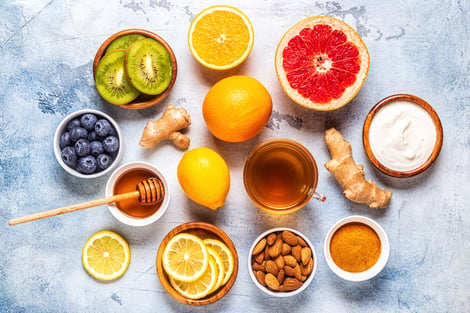 As the weather turns colder and we spend more time indoors, viruses will become more active among the population. Healthy eating can help you boost your immunity. Here are five of the top choices for fighting colds and flu with food.
As the weather turns colder and we spend more time indoors, viruses will become more active among the population. Healthy eating can help you boost your immunity. Here are five of the top choices for fighting colds and flu with food.
 Healthcare providers and scientists are all working diligently to find ways to prevent, treat, and cure COVID-19. Many of us are eager for answers and probably getting tired of not knowing what to believe. One of the hot topics floating around is about Vitamin D’s role in preventing COVID-19. Can Vitamin D really protect us against COVID-19 or at least lessen the effects? Let’s take a look.
Healthcare providers and scientists are all working diligently to find ways to prevent, treat, and cure COVID-19. Many of us are eager for answers and probably getting tired of not knowing what to believe. One of the hot topics floating around is about Vitamin D’s role in preventing COVID-19. Can Vitamin D really protect us against COVID-19 or at least lessen the effects? Let’s take a look. Vitamin D Recommendations
Vitamin D Recommendations
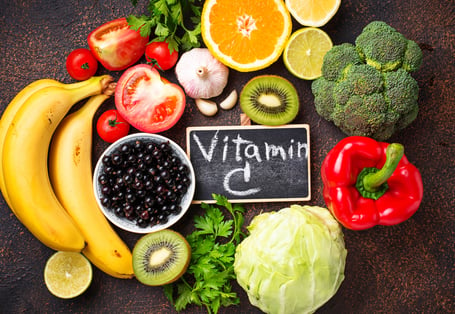 During cold and flu season, we try to do all we can to prevent illness or speed up how fast we recover from illness. One such strategy many employ is the use of Vitamin C for a natural remedy. Several products are marketed as immune system boosters because they contain large amounts of Vitamin C. Do these products really work? We set out to investigate!
During cold and flu season, we try to do all we can to prevent illness or speed up how fast we recover from illness. One such strategy many employ is the use of Vitamin C for a natural remedy. Several products are marketed as immune system boosters because they contain large amounts of Vitamin C. Do these products really work? We set out to investigate!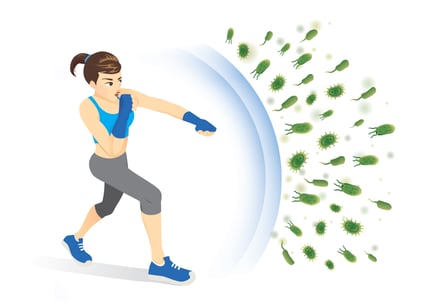 Have you ever noticed that during the cold and flu season, some people just don’t get sick no matter what? Or maybe you have wondered why after being exposed to the same virus, one person gets sick while the other doesn’t.
Have you ever noticed that during the cold and flu season, some people just don’t get sick no matter what? Or maybe you have wondered why after being exposed to the same virus, one person gets sick while the other doesn’t. How often is it that you hear someone say, “Man, that was a great night’s sleep!” or “I slept like a baby!”? Not as often as we would like to hear, I would say! Being tired and feeling sluggish seems to be the new normal. According to the
How often is it that you hear someone say, “Man, that was a great night’s sleep!” or “I slept like a baby!”? Not as often as we would like to hear, I would say! Being tired and feeling sluggish seems to be the new normal. According to the 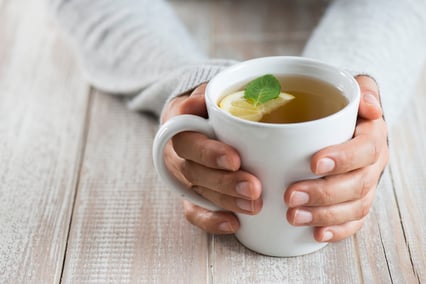 If you are like most people, the dreaded
If you are like most people, the dreaded  Biking can have significant benefits to your overall health and fitness! If you are looking for something to try that maybe you haven’t done in a while, consider hopping onto your bike…remember that’s that thing stashed in the back corner of the garage with flat tires and cobwebs hanging off the back of it!
Biking can have significant benefits to your overall health and fitness! If you are looking for something to try that maybe you haven’t done in a while, consider hopping onto your bike…remember that’s that thing stashed in the back corner of the garage with flat tires and cobwebs hanging off the back of it! 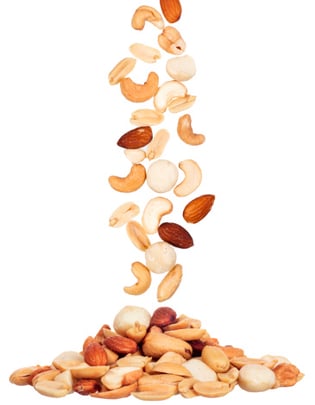 Nuts, basically one of the original food groups and predating even the most basic diet, have been a part of human existence since the beginning, and there is good reason. They taste good and are loaded with nutrients. The properties and benefits of nuts vary based on each individual nut, with some options being a little healthier than others.
Nuts, basically one of the original food groups and predating even the most basic diet, have been a part of human existence since the beginning, and there is good reason. They taste good and are loaded with nutrients. The properties and benefits of nuts vary based on each individual nut, with some options being a little healthier than others. This is the time of year when everyone seems to be getting sick. A head cold, the flu, a constant cough, a sore throat, chest cold, sinus infection…you name it, it’s around. I know when I am under the weather, one question that comes to my mind is, “Should I work out, or should I just let my body rest for a few days?”
This is the time of year when everyone seems to be getting sick. A head cold, the flu, a constant cough, a sore throat, chest cold, sinus infection…you name it, it’s around. I know when I am under the weather, one question that comes to my mind is, “Should I work out, or should I just let my body rest for a few days?”